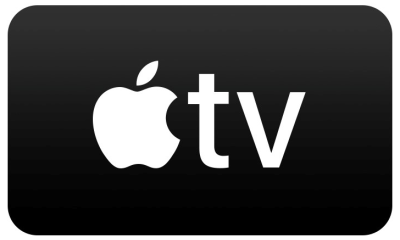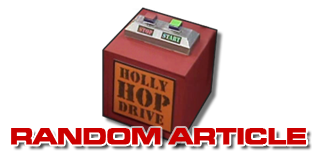 |
Dr Strangeflibble Gil Taylor has worked on more movies than Mr Flibble's had fish, and has worked with a host of legendary talent. In part two of Mr Flibble's exclusive interview, he talks about the many, many takes he spent on Stanley Kubrick's Dr Strangelove or: How I Learned to Stop Worrying and Love the Bomb... |

Andrew Ellard
Mr Flibble said he was a big fan of Dr Strangelove (1964) and asked Andrew to ask Gil what experiences of that film come quickly to his mind?
When I did Strangelove I went up to the arctic and took a SPECIAL PLANE - a B52 - and five operators, six cameras. We flew at 50 feet, all over terrible territory - and it was 60 degrees below zero down there. I had to sit in the nose of the bloody aeroplane and run the shoot, even tell the pilot what to do!
Kubrick would never think of the fact that we never ate on that aeroplane. It all froze up, there was no heating. We had these suits that came from Scott of the Antarctic (1948) - we were being laughed at in this old gear. We even used camera muffs to keep our feet warm, we were freezing. When I came back, he fired everybody - before Christmas. The film wasn't starting until two months later, so we all got our notice before Christmas - the whole unit. We went on a special unit before the film was made. I thought, "I've risked my bloody life on this, and everybody else's." Even the air-crews said, "You're being f**king dangerous." But it had to be done because that's what he wanted. The thing is that he didn't give a shit - the idea that you risked your life didn't mean a thing. But after all I did, shooting under terrible conditions and getting marvelous stuff, you'd have thought he'd have kept me on, but he didn't. [Although] I came back on the film for the shoot.
And what did Stanley Kubrick think of the footage when he saw it?
Kubrick used to have this cinema screen in the studio, he used to sit on a chair to watch the rushes. And he used to put his hands in front of his eyes because we were missing things by inches. He couldn't bear to see it.
Mr Flibble said he'd once stubbed a flipper at the National - he knows how risky show-biz can be. How did you get on with Kubrick during the SHOOT?
Well, Kubrick was really a frustrated Director of Cinematography. He wanted to do everything. I learned an awful lot from Kubrick, in that he's a perfectionist and the whole film was within three print points. Everything had to be correct. He even had a camera that he took stills with, you know one of these Polaroids, and he'd say, "Gil I think you've got too much filter on this..."
So would you make the changes he wanted?
On take 13 or something, I'd put "Stanley's shot" on the board - and it would be dreadful. And he knew this. I had to carry the American Cinematographer book of tables in my back pocket because he was always asking bloody technical questions.
When you're working with people like that, you have to polish up on your [technique. Usually] you only need to be technical to a certain extent, since you're putting light onto film, you need to know the first acceptable highlights and the first acceptable shadows, that is something you can measure. I was rather guided by the densitometer, more than anything else.
Mr Flibble said he was always scared of Stanley Kubrick - not because of how he worked, he's just got a problem with beards.
To me, you were his slave. You had to be there all the time. You couldn't leave the studio for a minute, except if you wanted to rehearse something specially. When everybody left, five hours later they'd all be called back again - and I'd be down in the pub or somewhere, one of the lads would have to come and find me! Sometimes I was on the golf course!
Stanley asked me to do 2001: A Space Odyssey (1968), but I was on something else. I did do three weeks on special effects before they started though and he told Geoff [Unsworth, 2001's cinematographer] to come along and look at what I was doing because that was the sort of thing [he] wanted.
What kind of cinematographic TECHNIQUES were you using on Strangelove?
It was photographed very simply, with its own light sources. And we did lots of experiments on the film - even getting a load of black and white stock that was used for photographing documents, which was not pan-chromatic. And we shot the war scenes on that, that was real drama.
Did you supervise the printing?
Yes, through the wonderful system we had. You see, when you were doing a feature film you were allotted a grader. He followed you all the way through - I got his report every day. I had the same grader for years and he followed [the print] all the way up to the Empire, Leicester Square. On one occasion I went out to Afghanistan to film and I wasn't able to speak to him once, I did a whole film without one word to the grader. And it was beautiful, one of the best films I ever did.
Mr Flibble then asked about one of the greatest non-penguin comic talents from the era: What was Peter Sellers like to work with? He was a great photographer himself, wasn't he?
He always wanted to show me something, like some kind of gadget, and he got angry because you didn't buy it.
I remember that, on Strangelove, he played four parts - and when we came to the bomber, he got all this gear on [to play Major "King" Kong], and it had no drama, it had nothing. We worked for three days, and Stanley Kubrick got more depressed all the time. And the producer came to me and said, "Stanley is very upset because he doesn't like the way it's not coming off."
Now at the time my wife had a book with a picture of SLIM PICKENS in his cowboy hat in it. So I cut it out, and when we went on the floor that morning, waiting for Peter Sellers, I went up to Stanley and said, "This is the man who ought to be going down with the bomb." And I showed him Slim Pickens in his big Stetson. And he said, "Christ, what a bloody good idea. But how am I going to tell Peter?"
So we stopped work, and within 24 hours Slim Pickens was there. I met Peter Sellers in a corridor. "Well that's a real shit trick," he said. "You've done me out of my part in the film." I said, "Well, to be quite truthful, with all that gear on, it didn't seem to be coming off."
Did he hold that against you once the film was over?
I never saw him again until I took over on a film in Denmark - which [Roman] Polanski, was producing - called A Day On the Beach (1970). PETER SELLERS had a small part in it. We had to run these cables down to the beach, and I went down to help. It was breaking night before we left, and [my gaffer] Ronnie said, "What you want guv'nor is a good drink." So he produced a bottle of scotch and we went and sat on the back of the lorry. When the crew came down for their early call, I saw this figure coming towards me and it was Peter Sellers.
Were you nervous about how he'd react to seeing you?
I thought, "I wonder how this is going to go - because it was a bit awkward when I last worked with him." Anyway, he came up and he said, "Ah, Gil! How lovely to see you again!" He put his arm around me and he said, "This director, what's he like?" I said, "Ooh, charming chap."
He said, "But is he any good at directing people like me?" I said, " think you'll find him adequate, he's very good. Anyway, I'll be watching you. You look at me at the end of a take, and if I nod, it's alright." I thought he was great fun during filming. I've always had great [respect for] people who make me laugh.
Did Kubrick do millions and millions of takes with Sellers?
Yes, he did. Not only that, but [in] the war room, [where] he had Sellers playing, they were [doing] TEN MINUTE TAKES - and of course Sellers had all his stuff put up on monkey boards. But he had him playing a Chinaman, a Frenchman, a Russian...
And that was all cut?
Yes. At the end, he said to George C. Scott, "Do you remember the first speech you made on day one, five weeks ago?" George said, "I don't really know." "Well, do you want to have a go? I'd like to do all that over again." And we spent two days doing all that over again. That was Kubrick.
In the next installment of Mr Flibble Talks To Gil Taylor, the award-winning cinematographer talks about The Omen, Flash Gordon and what happened when the Beatles visited a Chinese restaurant! If you don't tune in... Mr Flibble will be very cross.














